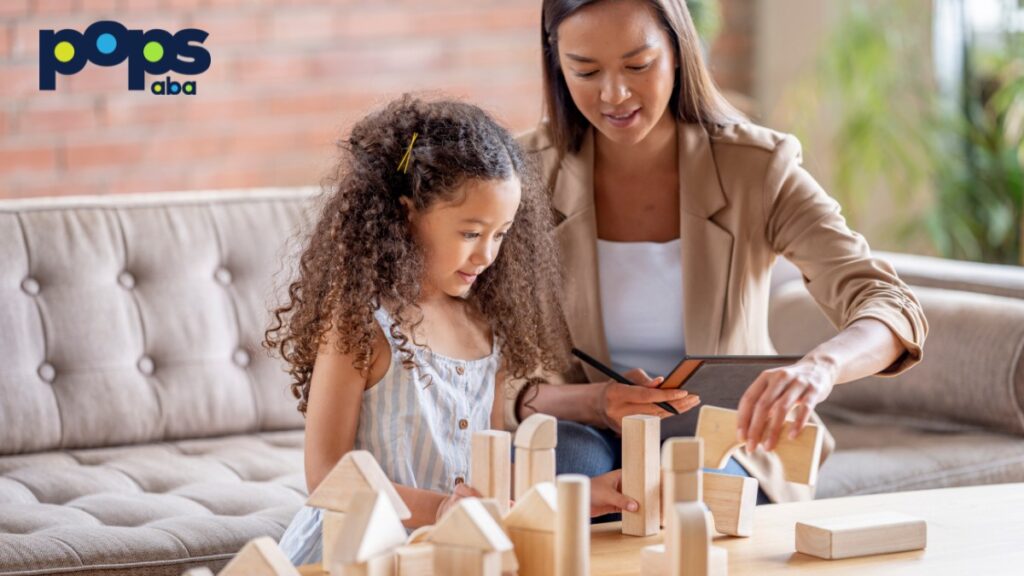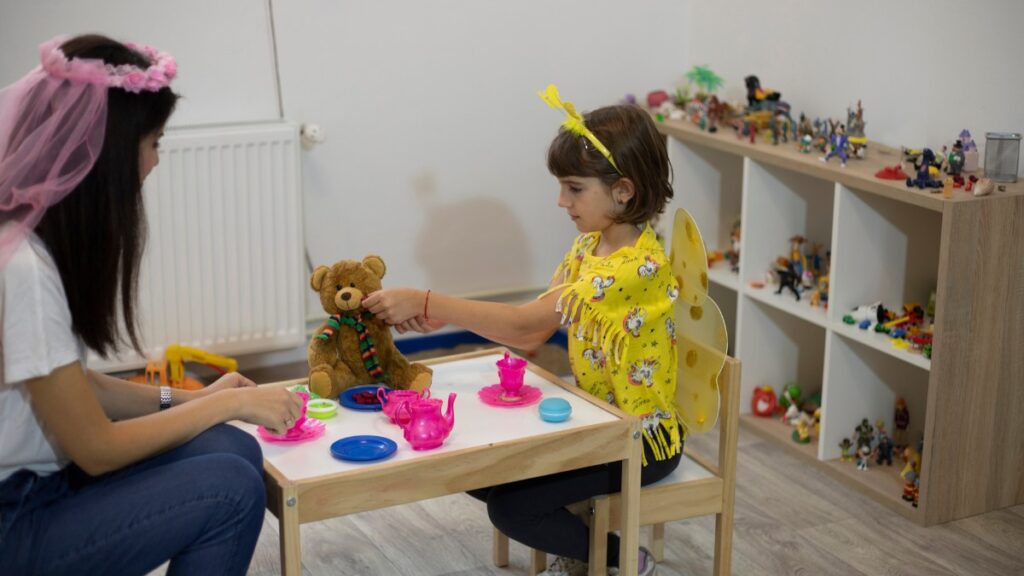Key Points:
- In-home ABA therapy offers a familiar, flexible setting that supports personalized autism care.
- New Jersey families are choosing this model for its convenience, comfort, and real-world learning benefits.
- Pops ABA is one of the providers offering in-home ABA therapy in New Jersey, helping families integrate therapy into their daily routines.
When it comes to supporting children with autism spectrum disorder (ASD), many families in New Jersey are discovering that the most effective therapy doesn’t always happen in a clinic. Instead, it’s happening right in their living rooms, kitchens, and backyards. In-home ABA therapy in New Jersey—offered by providers like us at Pops ABA—is quickly becoming the preferred choice for families who want a more flexible, natural approach to their child’s behavioral development.
Applied Behavior Analysis (ABA) therapy has long been considered the gold standard for autism intervention. But over time, families are realizing that the setting of this therapy can significantly impact its success. That’s why a growing number of New Jersey parents are choosing to bring therapy home—literally.
The Shift to In-Home ABA: What’s Behind the Trend?
The growing interest in in-home ABA therapy isn’t just about convenience (though that’s a big part of it). For many families, it’s about creating an environment where their child feels safe, supported, and understood.
Traditional clinic-based settings can sometimes feel overwhelming to children with sensory sensitivities. In contrast, in-home sessions take place in familiar surroundings, which naturally reduces anxiety and supports better engagement. As parents begin to see improved outcomes and stronger connections between the therapy and daily life, the appeal of in-home ABA therapy becomes clear.
This shift is also fueled by a broader understanding of how critical it is to involve parents and family in the therapeutic process. When therapy happens at home, parents and siblings can take part in the sessions, learn behavior strategies firsthand, and help reinforce the techniques throughout the day.
Benefits That Make In-Home ABA Therapy Stand Out
There’s no one-size-fits-all solution in autism therapy, but in-home ABA provides a level of personalization that’s hard to match in a clinic. Here are several reasons New Jersey families are choosing this route.
1. Real-Life Skill Building
At home, children practice behaviors in the environment where they actually live. This leads to:
- Improved Generalization: Skills learned in a real-world context stick better. Whether it’s asking for a snack or sharing a toy with a sibling, the lessons apply directly to everyday life.
- Natural Reinforcement: Therapists can use the child’s favorite toys, snacks, or routines as motivators—tools that are naturally available at home.
2. Increased Comfort and Reduced Anxiety
Familiar surroundings make a big difference for kids on the spectrum.
- Sensory-Friendly Environment: At home, children are less likely to experience sensory overload. They know what to expect—whether it’s the lighting, sounds, or routines.
- Lower Transition Stress: There’s no commute, no car rides, no new places to adapt to. That saves both time and emotional energy.
3. Parental Involvement and Coaching
In-home therapy invites parents to be active participants.
- Hands-On Learning: Parents get to observe strategies in action and are coached in how to continue them between sessions.
- Immediate Feedback: Therapists can guide caregivers in real time, offering adjustments and support as needed.
4. Flexibility with Schedules
In-home sessions can be tailored to fit the rhythm of your household.
- Custom Session Times: Morning, afternoon, or evening—whatever fits your family’s needs.
- No Commute = More Time: Cutting out transportation means more hours can be dedicated to actual therapy or family time.

How In-Home ABA Therapy Works in Practice
While every ABA program is individualized, here’s how an in-home model typically functions for families across New Jersey.
Initial Assessment
Before therapy begins, a Board Certified Behavior Analyst (BCBA) conducts a comprehensive assessment. This helps determine the child’s current skill level and behavioral challenges.
Personalized Treatment Plan
Based on the assessment, the BCBA creates a treatment plan tailored to the child’s developmental needs and family goals. This plan includes specific, measurable objectives.
In-Home Sessions
Registered Behavior Technicians (RBTs) deliver therapy directly in the home, guided by the BCBA. Activities may include:
- Teaching communication using visual aids or speech tools
- Practicing routines like brushing teeth or getting dressed
- Managing problem behaviors through behavior replacement strategies
Ongoing Supervision and Adjustments
The BCBA oversees progress regularly, adjusting the plan as needed and providing coaching to caregivers to ensure skills are reinforced outside of formal sessions.
Common Concerns About In-Home ABA—And the Real Answers
Some families hesitate to explore in-home therapy due to misunderstandings. Let’s break down a few common concerns.
- “My home isn’t set up like a clinic.”
That’s okay. Therapy is customized to your environment. No need for special equipment—the goal is to make interventions work within your natural space. - “Won’t it be distracting?”
Therapists are trained to manage everyday household distractions. In fact, learning how to focus and respond in a normal, dynamic environment is part of the therapy itself. - “I don’t have time to be involved.”
We work with your availability. Even short parent coaching sessions can make a big impact—and they’re usually built right into therapy time.
Who Benefits Most from In-Home ABA Therapy?
While all children with autism can benefit from ABA, the in-home model can be especially helpful for:
- Children who struggle with transitions or new environments
- Families with multiple kids or limited transportation
- Parents who want more direct involvement in the therapy process
- Children who need help developing independence at home (e.g., toilet training, chores)
We’ve seen firsthand at Pops ABA how transformative this approach can be. Families in New Jersey often tell us how much easier life becomes when therapy blends into their natural routines instead of competing with them.
How Pops ABA Supports Families in New Jersey
At Pops ABA, we provide in-home ABA therapy in New Jersey designed around your child’s needs and your family’s goals. Our process is collaborative from day one. We listen, we plan, and we work alongside you every step of the way.
We prioritize individualized treatment, compassionate support, and transparent communication. We know your time is valuable—and your child’s progress is even more so.
Wrapping It Up: The Future of Autism Support at Home
The move toward in-home ABA therapy reflects a deeper shift in how families in New Jersey are thinking about autism care. It’s not just about fitting into a program—it’s about finding a program that fits into your life. When therapy happens at home, the entire family becomes part of the learning process. The routines, challenges, and small victories of daily life all become opportunities for growth.
Whether you’re just beginning to explore ABA therapy or are looking for a better fit for your child, in-home therapy can offer the structure, support, and flexibility your family needs. And when you’re ready to take that step, we’re here to help.
Get in touch today to learn more about ABA therapy in New Jersey and how Pops ABA can support your family right where it matters most—at home.



